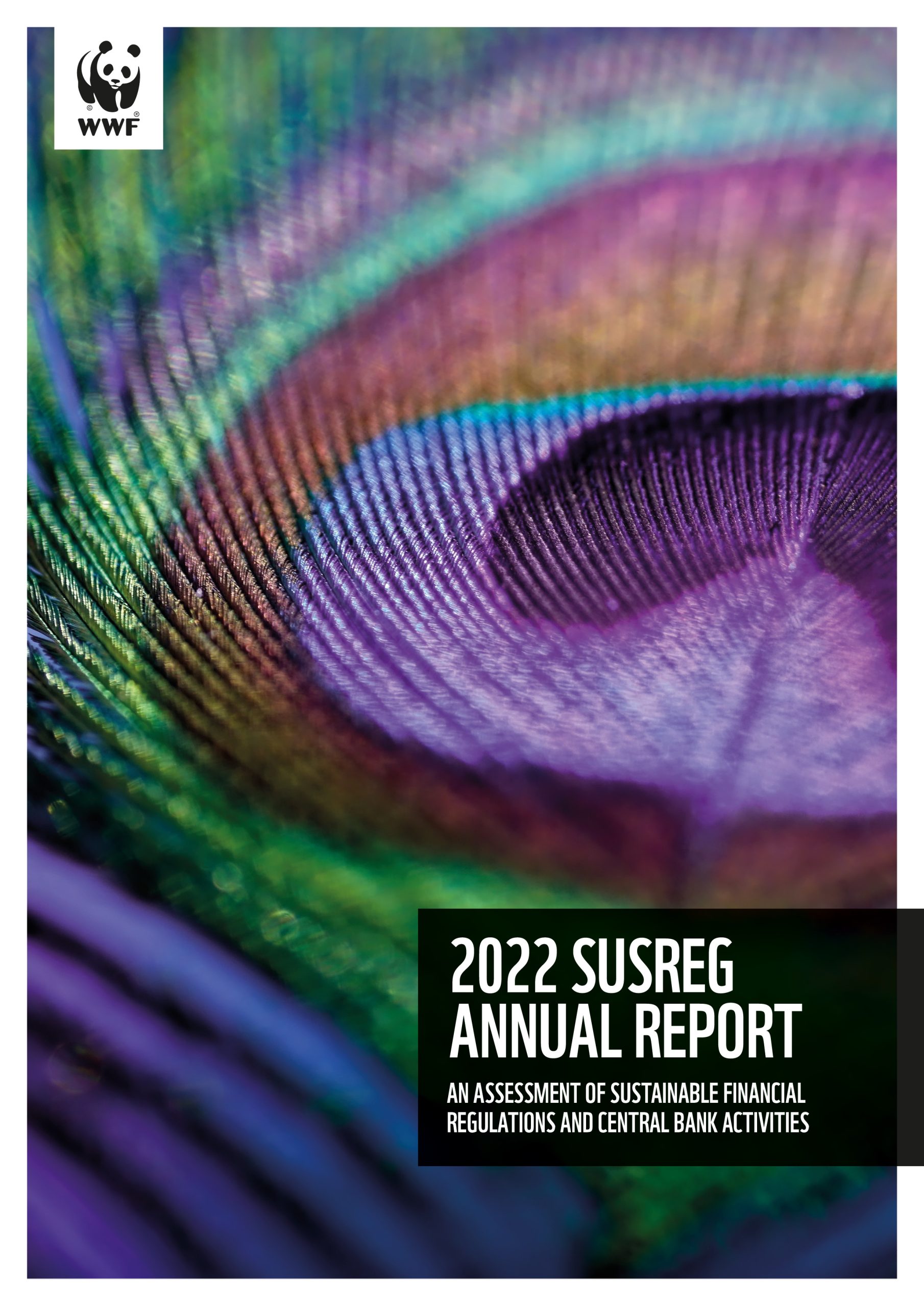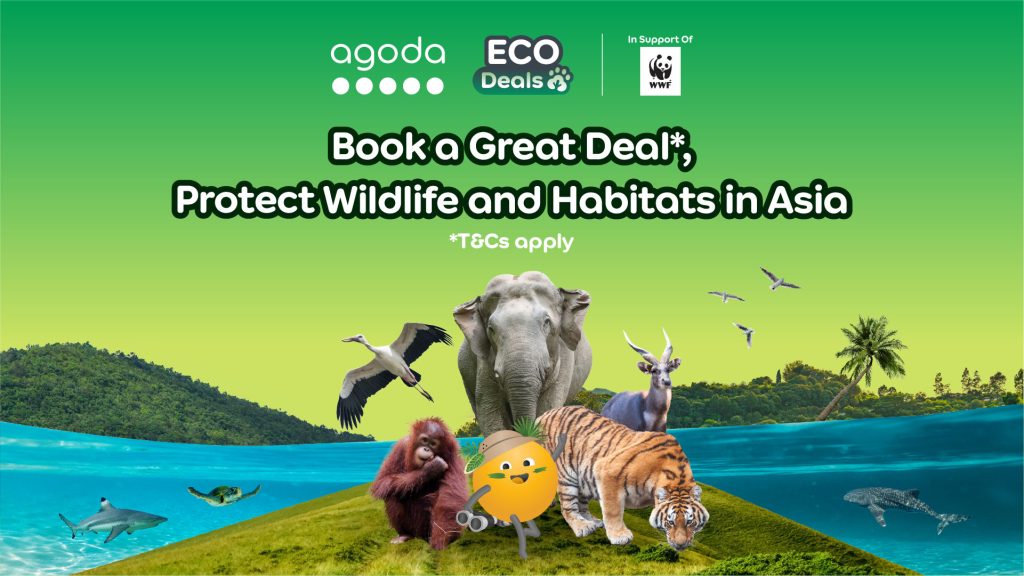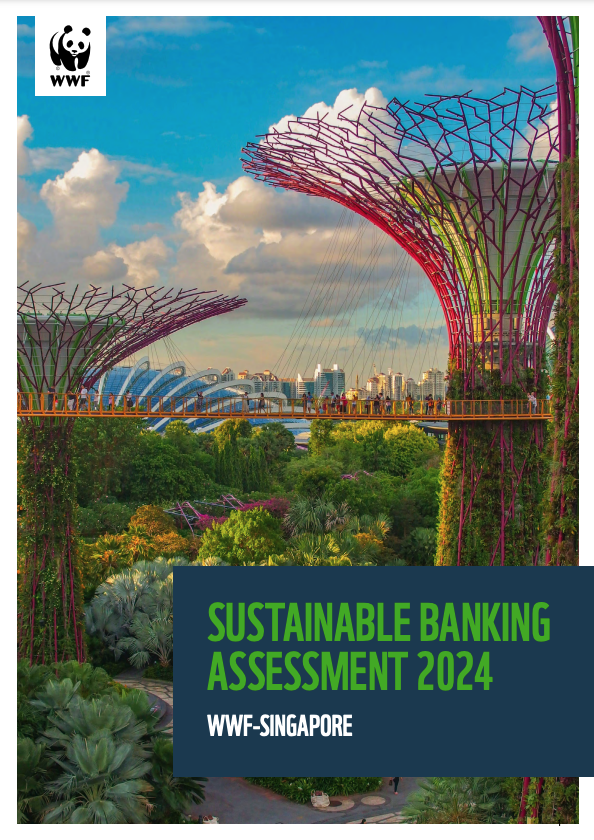- New findings of the WWF Sustainable Financial Regulations and Central Bank Activities (SUSREG) assessment 2022 show that despite initial steps taken by progressive jurisdictions, central banks and financial supervisors are not up to speed with the transition to a nature positive, net zero economy.
- Biodiversity and wildlife species populations have seen a devastating 69% drop on average since 1970, the WWF LPR 2022 indicates. Nature loss being as significant a threat as climate change should be addressed concurrently and in a preemptive way, as a twin financial crisis.
- Large sums of money continue to flow towards the most environmentally harmful activities, financially the riskiest, like deforestation, fossil fuel exploration and extraction, and destructive mining. These financial flows are driving further biodiversity loss and climate change and undermining any progress. Until global GHG emissions begin to fall and biodiversity destruction is halted and reversed, it can be assumed that the financial sector is not aligned with the objectives of the Paris Agreement nor the Convention on Biological Diversity.
- WWF welcomes the adoption of the Kunming-Montreal Agreement, which commits the world to act collectively and immediately to halt and reverse biodiversity loss by 2030, and urges central banks and financial supervisors to integrate those targets, and for financial institutions to steer away from lending and investing in companies with the most environmentally harmful activities whose assets are likely to become “stranded” as the world transitions..
Gland, 20 December, 2022 – WWF has today published a new report highlighting key findings from its SUSREG assessment 2022 which evaluates progress on sustainable financial regulations and central bank activities in 44 jurisdictions. Together, they represent over 88% of the global GDP, 72% of global GHG emissions and 11 of the 17 most biodiversity-rich countries in the world.
Overall, the assessment finds that despite progress by a number of front-running countries (which majority are members of the NGFS), there are too many important gaps that hinder the transition to a nature positive, net zero economy.
This year’s assessment looked at the performance of central banks and supervisors, including for the first time, the insurance sector. With US$ 30 trillion in assets under management and US$ 5 trillion in world premium volume, the insurance industry holds around a third of global economic assets and liabilities on their balance sheets.
Findings show some positive developments on sustainable banking and insurance regulation and guidance, as well as on disclosure /reporting are taking place in progressive jurisdictions:
- 88% of the jurisdictions issue banking regulations and supervisory expectations that take into account climate risks (79% for insurance regulation). Climate considerations are increasingly expected to be integrated in financial institutions’ business strategies as well as in risk management decision making processes and policies. However, broader environmental risks, including on nature loss, are still falling short.
- There is a growing requirement for mandatory climate disclosure of the risks from the impacts of climate change and the transition to a low-carbon economy (83% of jurisdictions require climate disclosure from banks). But broader environmental-related disclosure is lagging behind. Measurement and transparent reporting alone is insufficient to achieve change at the scale and speed required.
- Central banks and financial supervisors are increasingly publishing climate and sustainability strategies and roadmaps. However many do not have time-bound transition plans in place. Credible, ambitious mandatory transition plans are crucial to accelerate climate mitigation, halt and restore nature loss.
WWF urges central banks, supervisors and insurers, among other, to:
- Adopt credible transition plans, to set out clear and actionable steps to achieving science-based climate and nature targets, enabling the transition towards sustainability across the whole economy. Transition plans must provide necessary clarity and guidance to financial markets actors and have clear quantifiable, legally binding climate and biodiversity goals for 2025, 2030, and 2050 covering all central banking, financial regulation, and supervision activities.
- Ensure that monetary policies and financial regulatory instruments better reflect the economic cost and financial risk of ‘always environmentally harmful’ economic activities, companies and sectors’ as these assets represent the highest financial risks. Financial institutions that are lending to companies involved in environmentally harmful activities should face far higher capital requirements to account for the long-term risks involved.
“With the adoption of the Kunming-Montreal Agreement, committing the world to halting and reversing biodiversity loss by 2030, we need immediate, coordinated and consolidated international action including from central banks, supervisors and regulators. Through its role as provider of capital, credit and insurance to the real economy, the financial system has a critical part to play in the transition to a low-carbon, nature-positive and a fair economy”, said Maud Abdelli, Lead WWF Greening Financial Regulation Initiative.
“We simply cannot afford to cross the climate tipping points and to have an ecological meltdown. Along with governments and civil society, financial regulators, supervisors and central banks need to deliver an immediate, wide-ranging impact in reversing biodiversity loss without excuses or delays, “said Dr. Adam Ng, lead author of the SUSREG Annual Report 2022.
To help reach their goals, WWF has set out a pathway to a climate safe and nature positive global economy, for the financial sector to globally adopt new nominal anchors for their mandates – 1.5ºC, full biodiversity recovery by 2050, -50% GHG emissions (baseline 2019) and nature positive by 2030.
– End –
Notes to the editor:
- “Nature-positive” refers to the WWF and World Economic Forum (WEF) definitions, indicating that there needs to be more nature in 2030 than in 2020, that at least 30 % of land and oceans are protected, the footprint of our production and consumption is halved by 2030, and that there cannot be any offsetting.
- More detailed information, findings, conclusions and recommendations from the SUSREG assessment see annual assessment report here.
For media requests, please contact:
| Neesha Sahl Strategic Communications, WWF-Singapore nsahl@wwf.sg | Hazel Xu Strategic Communications, WWF-Singapore hxu@wwf.sg |
About the WWF SUSREG Assessment
In 2021, WWF launched the Sustainable Financial Regulations and Central Bank Activities (SUSREG) assessment to evaluate how environmental and social risks are integrated in regulatory and supervisory practices, as well as in central banking and other financial activities. The aim of the assessment is to help central banks and financial supervisors benchmark their policies against emerging regional and global good practices with the overall goal of redirecting financial flows toward sustainable practices, and moving away lending, underwriting and investment from the most environmentally harmful businesses and sectors, in support of a net zero, nature positive economy.
Assessments are published on a yearly basis, with an accompanying annual report available here. This year’s annual assessment looks at the performance of central banks, banking and insurance supervisors regulators in 44 jurisdictions all over the world. The individual country results of the assessment will become available on a revamped online platform SUSREG Tracker in February 2023. With an initial focus on banking supervision, the SUSREG framework will be gradually expanded to cover other key parts of the financial system such as capital markets and asset management. More information: https://www.susreg.org/
About WWF´s Greening Financial Regulation Initiative (GFRI)
WWF´s Greening Financial Regulation Initiative seeks to put climate and environmental risk at the heart of the financial system. Through this initiative, WWF wants to evidence the link between financial risks and environmental risks like climate change, water scarcity and biodiversity decline, and engage policy makers, central banks and financial supervisors on the need to integrate those risks into their mandates and operations. In doing so, WWF provides the necessary tools, scientific research, assessments, and assistance to help enhance ambitions on the sustainable finance global policy agenda.
More information: www.panda.org/gfr















